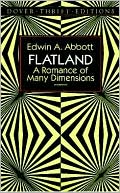Comments: This thought-provoking book comes from my favorite Christian author, thinker and knee-jerk liberal (the latter in a refreshingly non-political sense).
In one of the most memorable chapters, Miller and a few of his friends have been looking for a way to "come out" as Christians on their ultra-liberal college campus. So, during the college's spring festival, they build a small wooden booth in the middle of campus, and label it "Confessions Here". The first student sticks his head in and says, 'so, I'm supposed to tell you all the bad things I've done this weekend?' Miller replies, 'No, as a Christian, I'm confessing to you'. He explains:
Jesus said to feed the poor and to heal the sick. I've never done very much about that. Jesus said to love those that persecute me. I tend to lash out when threatened. Jesus did not mix His spirituality with politics. I grew up doing that, and it got in the way of the central message of Christ. I know that was wrong, and I know that a lot of people will not listen to the words of Christ because people like me, who know Him, carry our own agendas into the conversation rather than just relaying the message Christ wanted to get across.
That's a recurring theme in this book - i.e. that we've linked Christianity so tightly to our narrow political and social ideologies that we're driving folks away before they even get a chance to hear His message. The world isn't rejecting Christ any more, they're rejecting our politics and our agenda.
I said earlier that Miller is a refreshingly non-political liberal. What I mean is that he points out the inconsistency between the issues that we conservatives often put our time and energy into, versus those that Christ actually spent his time talking about - poverty, hunger, injustice, etc. However, unlike many "socially conscious" Christians, Miller resists the temptation to suggest that either political party has the answer. Rather, he says, the need is for Christians on all sides of the political spectrum to take Spirit-led action individually, beginning in their own backyards.
How that happens is a lot of what this book is about. But it's not a textbook or a step-by-step guide (another reason I like it). Think of it as a glimpse into a thought process, as Miller describes his disenchantment with the shallow legalism that he grew up with, and his journey toward a deeper, more satisfying understanding of what it truly means to be a Christ-follower.
This was my second time to read the book, which means I was less rushed and more able to stop and think about certain sections. If you've read it before, try doing the same - you 'll pick up a lot you missed the first time.































